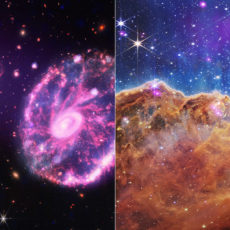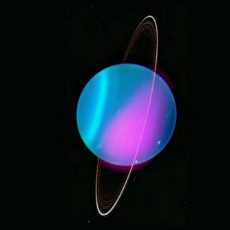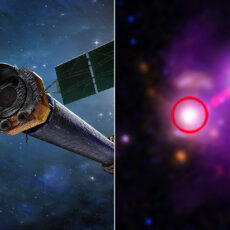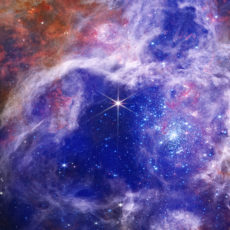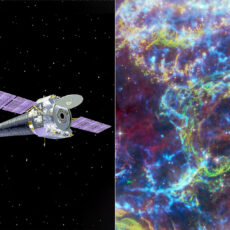
NASA’s Chadra X-ray Observatory (red) and Hubble Space Telescope (blue) observe the peculiar Guitar Nebula, located 6,500 light-years from Earth in the constellation Cepheus. What you’re looking at is basically a filament of energetic matter and antimatter particles, approximately 12 trillion miles long, launching away from the pulsar.
This structure, connected to the pulsar PSR B2224+65, was named as such because of its distinct resemblance to the instrument in glowing hydrogen light. Its guitar shape is formed by the bubbles blown from the pulsar’s ejected particles through a steady wind. Since this pulsar is moving from the lower right to the upper left, most of the bubbles were generated in the past as the pulsar moved through an area of space with variations in density.
- Superior Optics: 400mm(f/5.7) focal length and 70mm aperture, fully coated optics glass lens with high transmission coatings creates stunning images...
- Magnification: Come with two replaceable eyepieces and one 3x Barlow lens.3x Barlow lens trebles the magnifying power of each eyepiece. 5x24 finder...
- Wireless Remote: This refractor telescope includes one smart phone adapter and one Wireless camera remote to explore the nature of the world easily...

How does space produce something so bizarre? The combination of two extremes — fast rotation and high magnetic fields of pulsars — leads to particle acceleration and high-energy radiation that creates matter and antimatter particles, as electron and positron pairs,” said Lee Mohon, NASA Web Editor.



